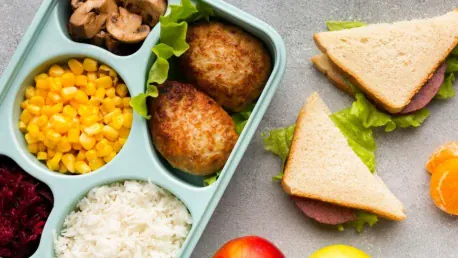In recent times, the issue of food insecurity among students has gained significant attention, with educators and advocates in Hawai’i taking a stand to ensure that no child goes hungry while attending school. House Bill 757 aims to provide free meals to all public school students in the state, supported by personal narratives and professional observations that underscore the necessity of this initiative. For many students, having access to nutritious meals directly impacts their ability to learn and succeed academically.
Struggles Faced by Students
Personal Stories of Food Insecurity
Hali’a Tom-Jardine and Tayli Kahoopii, both student advocates, have first-hand experiences that highlight the pressing need for universal free meals in schools. Drawing from their own school days, these young advocates recount numerous instances where they had to share their meals with peers who could not afford to buy food. Such stories are not isolated incidents; they paint a vivid picture of the daily struggles many students face. Tom-Jardine and Kahoopii’s testimony underscores the disparities between students who qualify for free or reduced lunch programs and those who do not, creating a divide that impacts educational equality.
Many families live just above the cutoff for free or reduced lunch qualifications and yet still struggle to provide meals for their children. This gap often goes unnoticed, leading to situations where some children come to school without breakfast or lunch. Hali’a and Tayli’s advocacy draws attention to these less visible but significant struggles, illustrating how universal free meals could bridge this gap and provide all students with the necessary nutrition to thrive academically. They believe that a policy ensuring every child has access to free school meals could serve as a fundamental equalizer, helping to diminish the socio-economic barriers that currently hinder many students’ ability to focus and perform well in their studies.
Educators’ Perspectives and Efforts
Sarah Milianta-Laffin, an educator at ‘Ilima Intermediate School, stands as a testament to the everyday efforts of teachers who go above and beyond their duties to support their students. She speaks candidly about how crucial breakfast and lunch are for the academic success of the half of the student population at her school who receive free or reduced-price meals. But she also sheds light on a troubling issue: some families avoid applying for these programs due to fears of intervention by social services, leaving many children without the essential nutrition they need.
In her commitment to her students, Milianta-Laffin, along with her colleagues, often ends up sharing their own lunches, applying for grants, and even purchasing food from their own pockets. Despite their financial constraints, these educators prioritize their students’ well-being, highlighting a systemic issue that requires structured intervention. Milianta-Laffin argues that the implementation of free meals for all students would not only ensure that every child is nourished but also strip away the stigma associated with receiving free meals. This would create a more inclusive and supportive school environment where every student can concentrate on learning rather than worrying about their next meal.
Progress and Future Plans
Legislative and Government Support
Efforts to push for universal free meal programs are gaining traction among government officials, spotlighting a growing consensus on the importance of addressing food insecurity in schools. The Governor’s Office has acknowledged the urgency of the issue, indicating plans to develop a system of universal free school meals within the next five years. This plan involves navigating through various bureaucratic processes to secure federal funding and establish sustainable mechanisms, demonstrating a long-term commitment to resolving the issue.
This development is a critical step forward, providing hope that substantial changes are on the horizon. By enacting House Bill 757, Hawai’i would join other states that have recognized the profound impact of food security on education. The coordinated efforts of educators, students, and officials underscore a shared commitment to ensuring that all children, regardless of their socio-economic background, have access to the nutrition they need.
Public Engagement and Advocacy
Recently, the problem of food insecurity among students has garnered significant attention. Educators and advocates in Hawai’i are determined to ensure that no child goes hungry while attending school. House Bill 757 is a legislative measure designed to provide free meals to all public school students in the state. The support for this bill is grounded in both personal stories and professional observations that highlight the critical importance of the initiative. For many students, having access to nutritious meals has a direct effect on their ability to learn effectively and succeed academically. No child should face the distraction of hunger in the classroom, and this measure aims to foster a healthier learning environment where all students can thrive without worrying about their next meal. Education and proper nutrition go hand in hand, and House Bill 757 takes a crucial step toward addressing food insecurity, ensuring every student has the opportunity to achieve their full potential.









